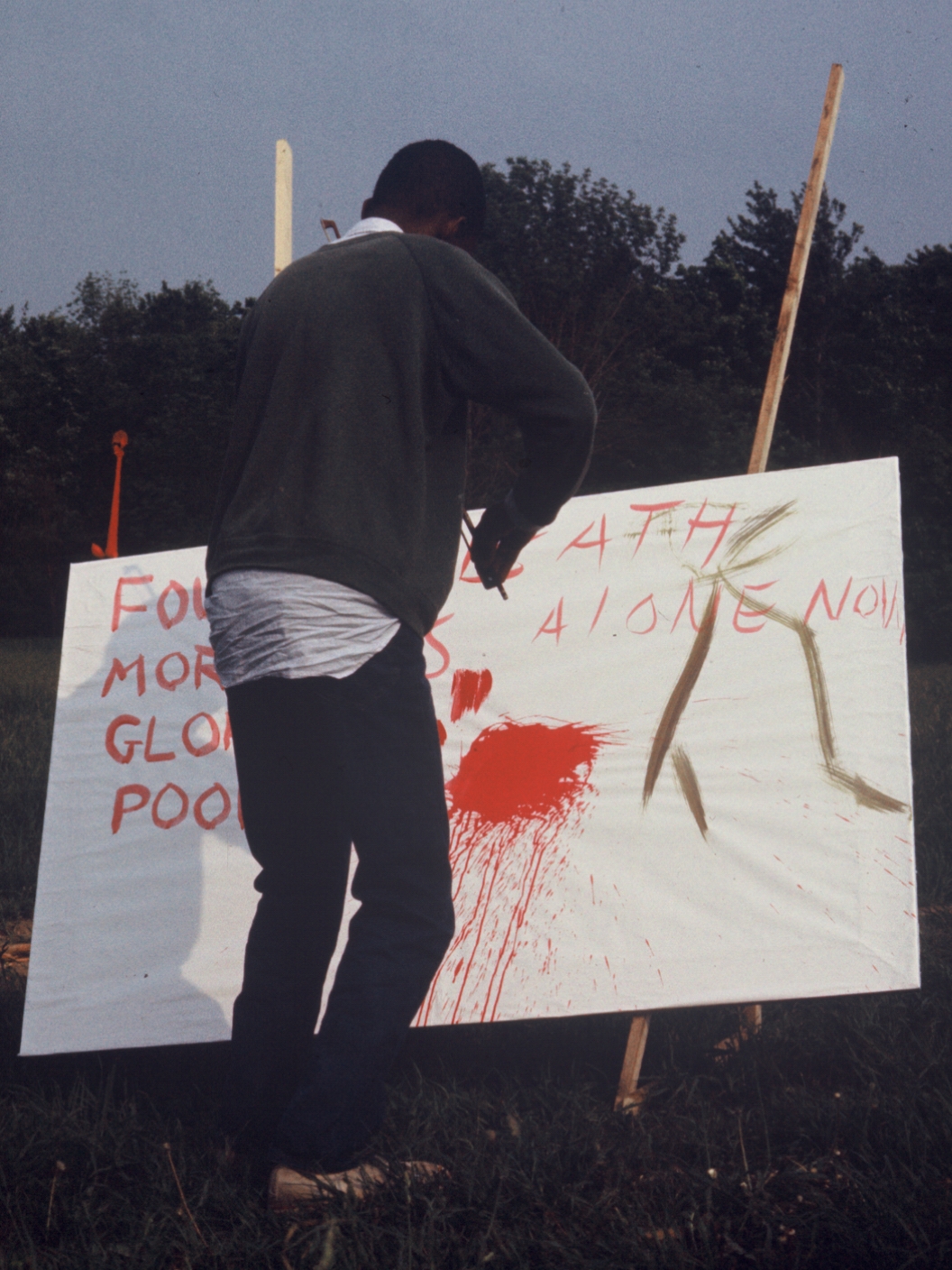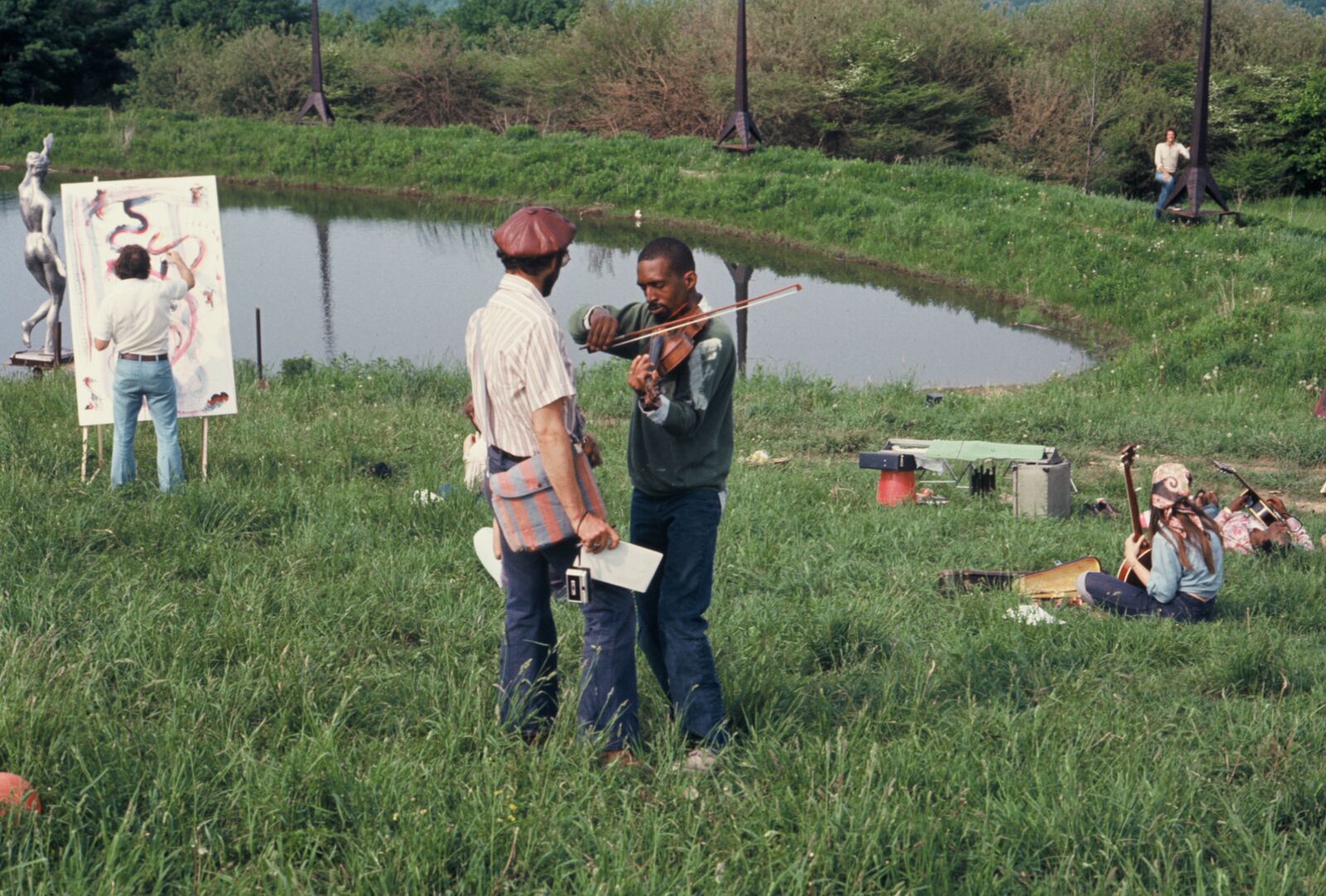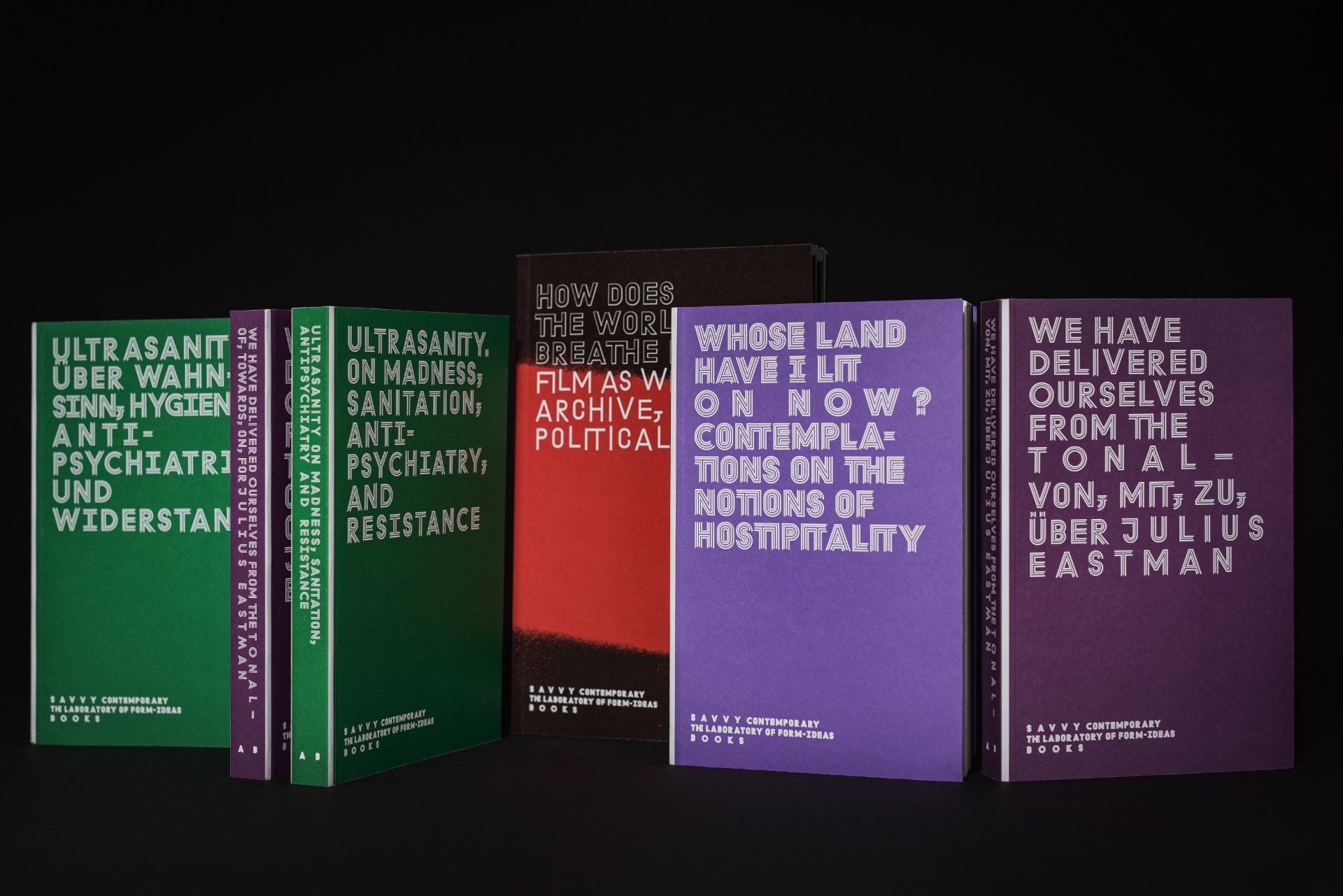We Have Delivered Ourselves From the Tonal.
Of, Towards, On, For Julius Eastman
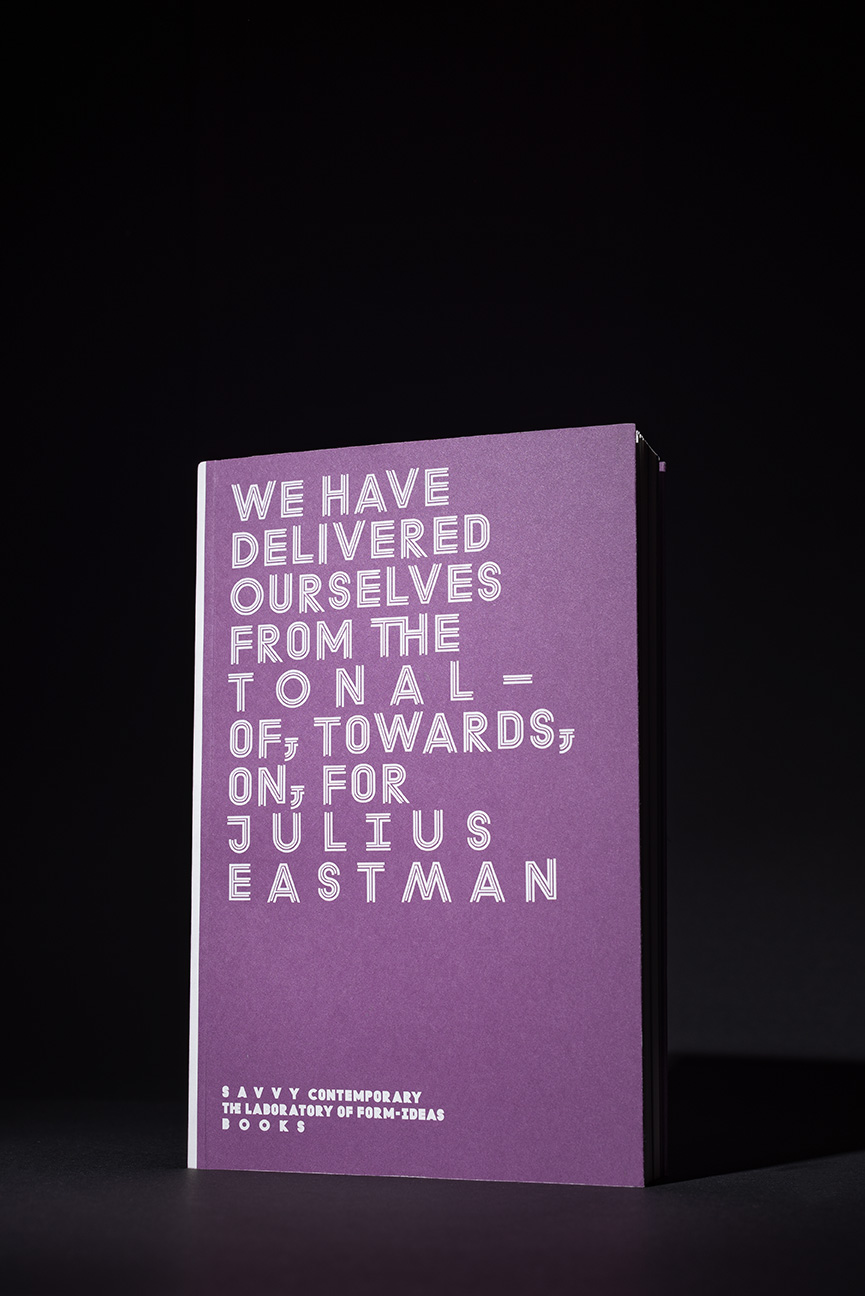
With contributions by
Julius Eastman and Antonia Alampi, Artiste (Malak Helmy & Janine Armin), Rocco di Pietro, Kodwo Eshun, David Garland, Sumanth Gopinath, Sean Griffin, Josh Kun, Mary Jane Leach, George E. Lewis, Jean-Christophe Marti, Elaine Mitchener, Bonaventure Soh Bejeng Ndikung, Berno Odo Polzer, Pungwe (Memory Biwa & Robert Machiri), Chris Rusiniak
Online Launch 02.04.2021 20:00
STREAM via our Facebook and Youtube channel
ONLINE ARCHIVE Come stroll through the Common Garden archive that we planted for our four new books: savvybooks.savvy-contemporary.com
This collection of essays, librettos, lyrics, memories, photos, personal anecdotes by musicians, visual artists, researchers and archivers pays homage to the work and life of African-American composer, musician, performer, activist Julius Eastman.
It investigates Eastman’s legacy beyond the predominantly Western musicological format of the tonal or harmonic and the framework of what is today understood as minimalist music. By trying to complicate, deny or expatiate on the notions of the harmonic, tonal hierarchy, the triadic, or even the tonal centre, Eastman’s compositions explore strategies and technologies of attaining the atonal. One might be tempted to see Eastman in the legacy of Bartok, Schönberg, Berg and others, but here too, it is worth shifting the geography of minimal tendencies and minimalism in music. It is worth listening and reading Eastman’s music within the scope of what Oluwaseyi Kehinde describes as the application of chromatic forms such as polytonality, atonality, dissonance as the fulcrum in analysing some elements of African music such as melody, harmony, instruments and instrumentation.
This publication unfolds through the two year research, exhibition and performacne project We Have Delivered Ourselves From the Tonal, and it constructs a non-linear genealogy of Eastman’s practice and his cultural, political and social relevance, while situating his work within a broader rhizomatic relation of musical epistemologies and practices.
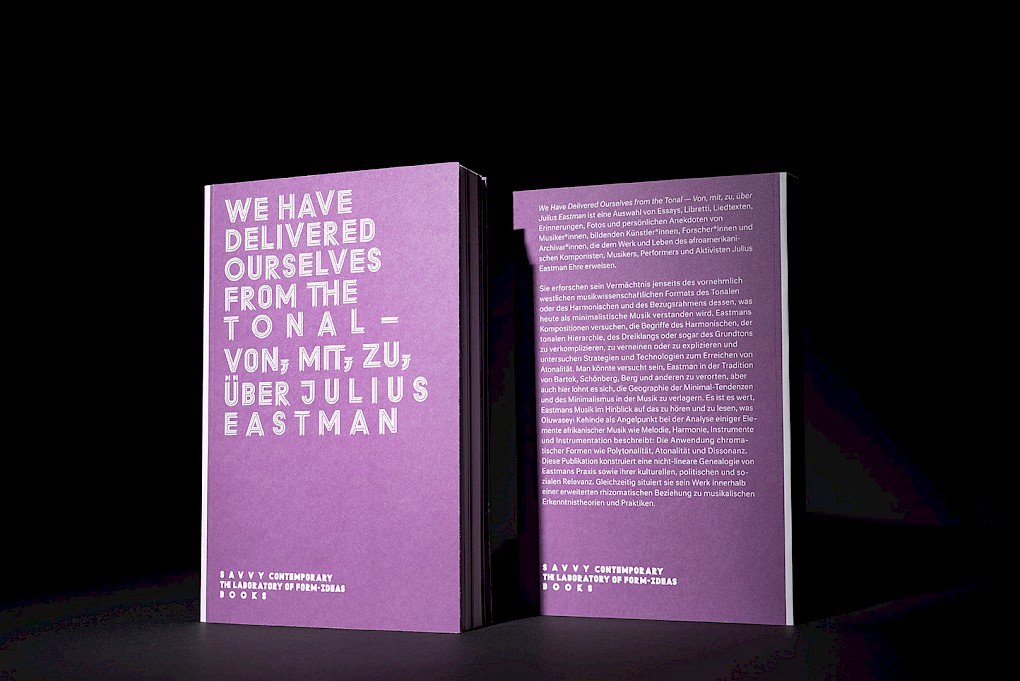
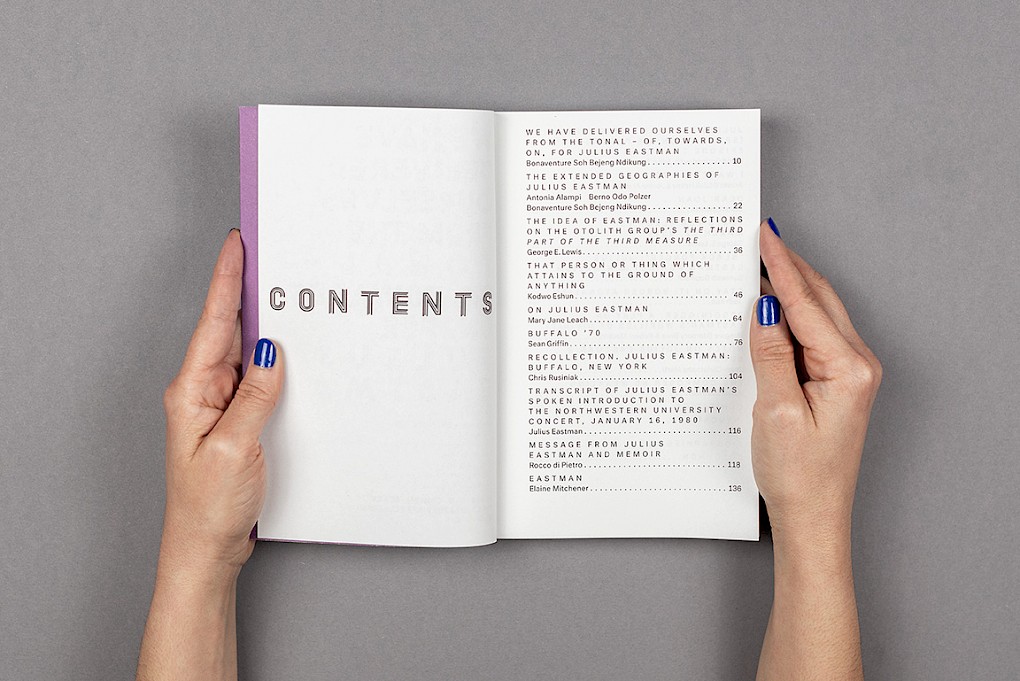
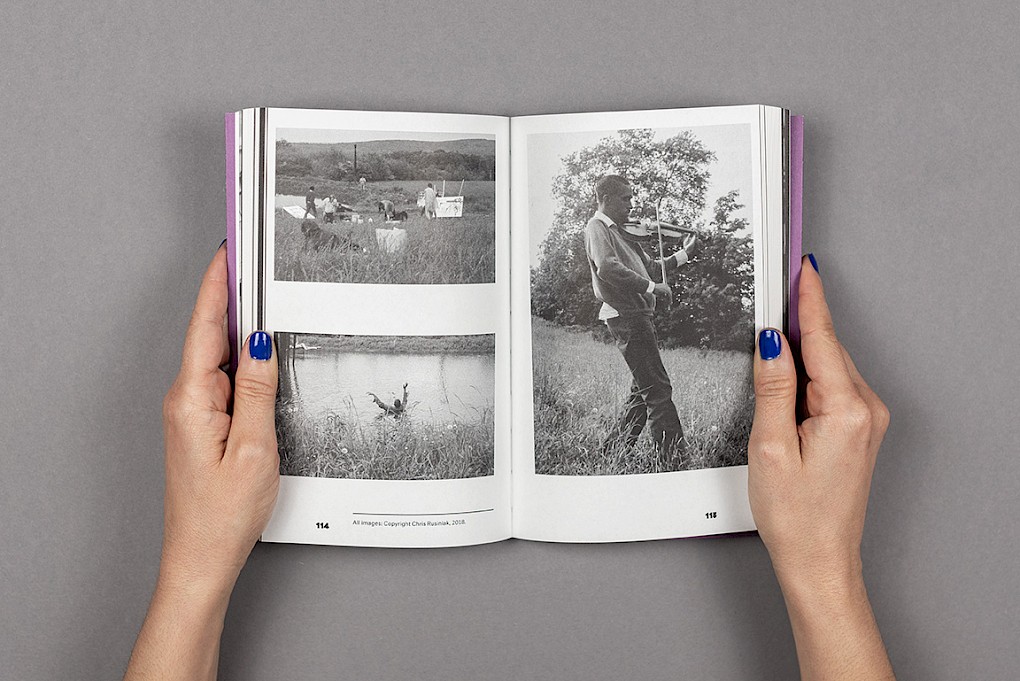
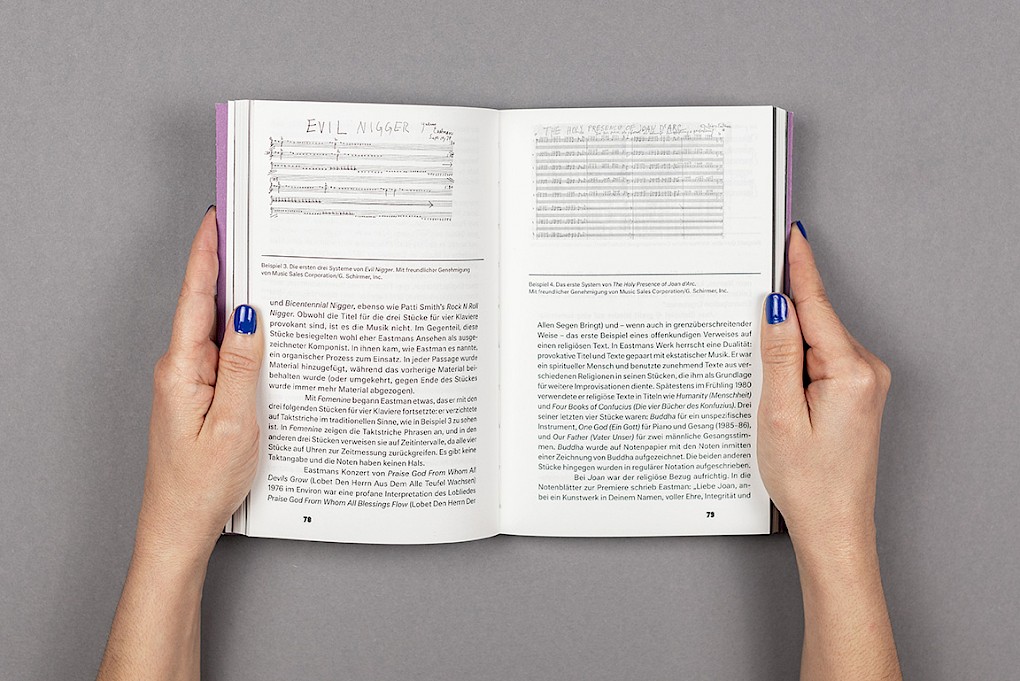
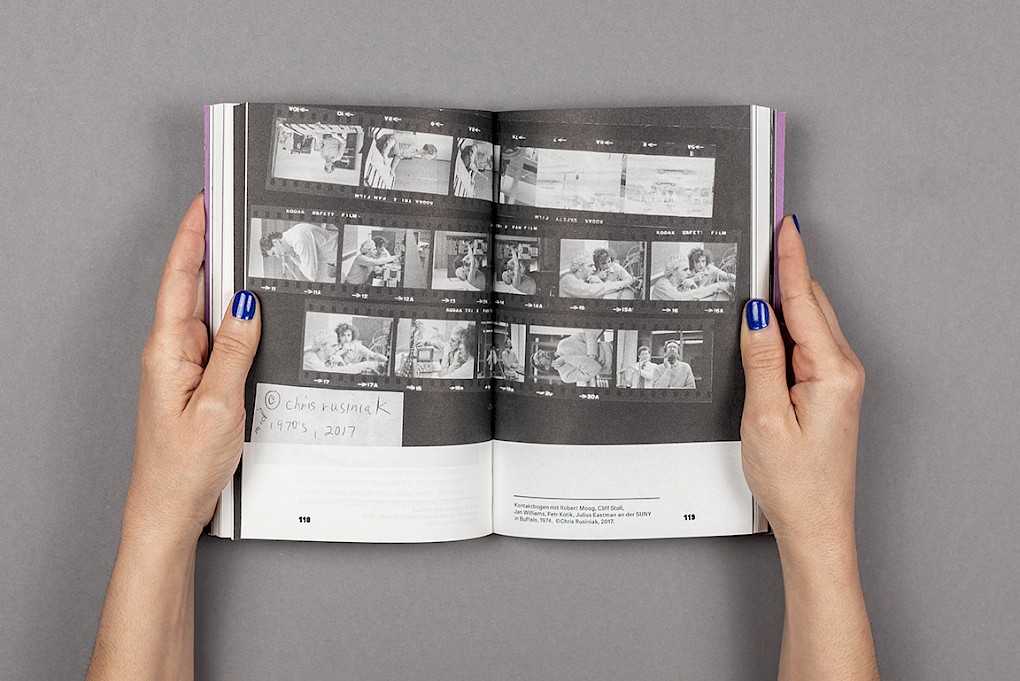
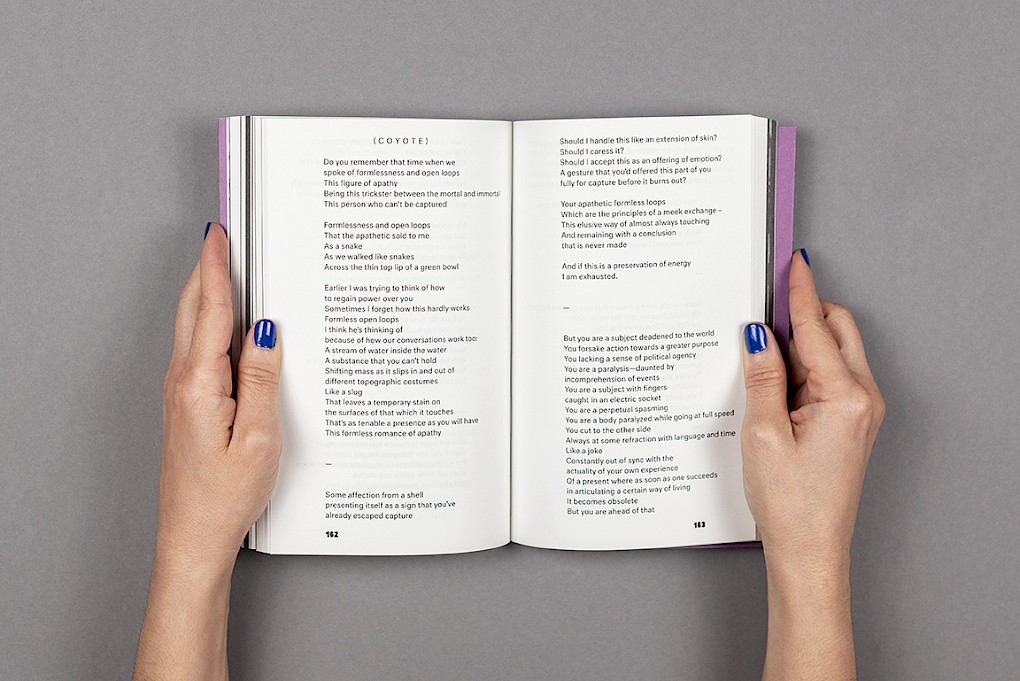
SAVVY Books aims at promoting epistemological diversity, resonating with Boaventura de Sousa Santos’s claim that “Another Knowledge is Possible.” By acknowledging the limits and faults of academic disciplines and advocating for processes of unlearning, our effort is thus to create a platform which encourages extra-disciplinary knowledges – and promotes the thinking and writing of authors, artists, philosophers, scientists, and activists whose practices challenge Western epistemologies: looking towards epistemic systems from Africa and the African diaspora, Asia-Pacific, the Middle-East and Latin America.
The series brings together SAVVY Contemporary and Archive Books in a collaboration based on the shared interest in a multiplicity of knowledges beyond the Western canon and a commitment to foster critical discussions and forge new collaborations and coalitions. We like to think of the books in this series as “borderlands,” to use an expression by Chicana poet and feminist Gloria Anzaldúa, by which we mean spaces where “a new story to explain the world and our participation in it” can be elaborated and told; spaces where epistemological disobedience (Walter Mignolo) and divergent thinking can be practiced.
EDITED BY Federica Bueti, Antonia Alampi, Bonaventure Soh Bejeng Ndikung
GERMAN TRANSLATION By Anna Jäger
SAVVY BOOKS ART DIRECTION Elsa Westreicher
GRAPHIC DESIGN Clara Brandt, Archive Appendix, Lilia Di Bella, Sara Marcon, Chiara Onestini, Ilaria Pittassi
PUBLISHING Archive Books in collaboration with SAVVY Books
2020, English (also available in German translation), 260 pages
ISBN 978–3–948212–11–7
PRICE 20 EUR
Available At SAVVY Contemporary (cash only) or worldwide via the publisher's website archivebooks.org
THE PROJECT WAS INITIATED BY Bonaventure Soh Bejeng Ndikung
THE PROJECT WAS CURATED BY Bonaventure Soh Bejeng Ndikung, Antonia Alampi and Berno Odo Polzer
A SAVVY Contemporary project in collaboration and co-production with MaerzMusik – Festival for Time Issues.
The project was funded by the German Federal Cultural Foundation.

